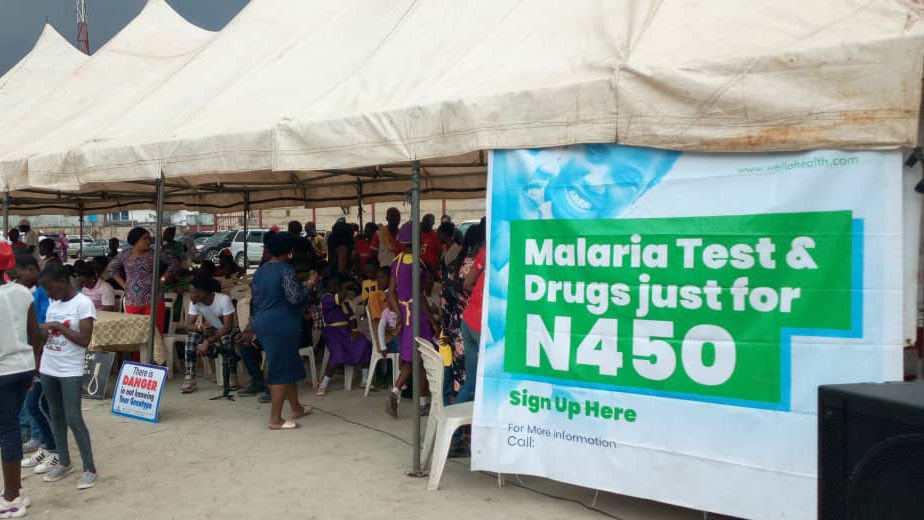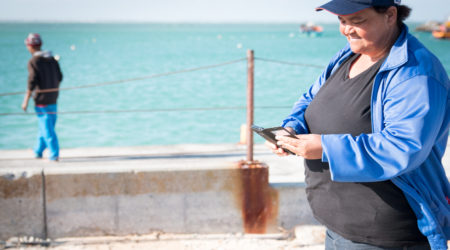WellaHealth’s microinsurance innovations are poised to deliver significant benefit to Nigerians

In Nigeria, like in many emerging markets, adoption of health insurance is very low. As of 2018, only 5% of Nigerians were covered by health insurance, suggesting that the overwhelming majority of Nigerians experience considerable financial stress due to medical expenses. The COVID-19 pandemic has put even more pressure on health costs for poor and vulnerable people, especially where healthcare coverage is low. In light of this stress, microinsurance has become a critical tool for both financial and medical health.
Low uptake of traditional insurance policies can partially be attributed to their weak value proposition among low-income populations. This is due to various factors: the relatively low cost of healthcare, lack of data to underwrite the types of risks faced by low-income families, fragmented logistics and payment rails, low awareness, and limited access to information about insurance. Additionally, even when people buy insurance, they are often disappointed as they don’t understand how to make claims, or find that their catastrophic events are not covered by their policies.
However, microinsurance innovators are quickly finding ways to adapt insurance policies and implementation, to better match the needs and preferences of low-income consumers in emerging markets. Catalyst Fund portfolio company WellaHealth is offering a pioneering malaria insurance product that meets users’ desire for an immediate benefit that can be accessed with minimal steps and paperwork.
Moving to microinsurance
To start, by focusing on malaria cover, WellaHealth has shifted the concept of insurance from focusing on coverage for infrequent catastrophes, which are hard to conceptualize if a user has not experienced them, to a focus on a rather frequent, but quite unpleasant, illness they are likely to experience. This is an important distinction for users who are unfamiliar with insurance as it allows them to experience the benefits of the coverage during the duration of the policy.
This experience builds trust and understanding of insurance, priming users for other, more comprehensive policies in the future. Focusing on malaria-specific coverage as a distinct offering also allows underwriters to leverage the swathes of existing data on malaria episodes and costs of treatment, which are more predictable than other illness profiles.
The malaria coverage is particularly compelling for Nigerians as the price point for WellaHealth’s basic plan starts at about $1 a month, whereas patients would typically pay four times that or more out-of-pocket. Moreover, 50% of Nigerians can expect to contract malaria at least once per year, and only 15% of Nigerians can afford to purchase ACTs, the most effective form of treatment.
Reinventing insurance processes
With low-income users in mind, WellaHealth has reinvented the insurance product flow to minimize and simplify steps both in terms of actions customers need to take (e.g., registration, claims submissions) and in terms of payments.
When a user feels ill with suspected malaria, he no longer has to stand in line and wait to see a doctor, only to receive orders to go run diagnostic tests. Instead, he calls the WellaHealth call center where he is immediately greeted by a friendly, knowledgeable WellaHealth medical advisor. WellaHealth advisors are able to quickly verify the identity of the caller and determine whether they have a valid insurance plan. Based on the user’s symptoms, the advisor relays a testing and treatment plan.
If malaria is suspected, the user will be directed to the closest WellHealth partner pharmacy and diagnostic center. The medical advisors call the pharmacy ahead of time to ensure it is expecting the user and can attend to them promptly. As one WellaHealth user remarked:
I have been well attended to at the pharmacies. I have really enjoyed the service, and the level of customer service has been great.
Upon arrival at the pharmacy, WellaHealth customers are tested for malaria, and if positive, are given quality malaria medication and treatment advice. Additionally, WellaHealth users also have access to a telemedicine service, which allows them to speak directly with a doctor for further consultation, if needed. The plan includes additional complimentary health services for common issues, such as blood pressure tests.
Understanding that Nigerians typically seek treatment at pharmacies, WellaHealth leveraged this behavior to make their process easy to adopt. Moreover, it allows users to avoid unnecessary trips to clinics and hospitals where waiting time can be particularly long. One study, for instance, found that 61% of patients waited 90-180 minutes to be seen at a particular clinic. According to one user:
I loved having pharmacies close by that I could access when sick. It is far more convenient than going to the hospital to queue with my child.
WellaHealth also ensures their plans are easy to understand and avoid hidden clauses or charges – something that sets them apart from existing options. This means that plans are easily understood, even by users without high levels of education or literacy.
Financial transactions are fewer, easier
Particularly for low-income customers, making frequent payments for something like insurance, or fronting costs at multiple parts of the process, poses significant barriers. WellaHealth has simplified the payments and claims processes, removing the need for users to bear upfront costs for treatment and streamlining payments.
For example, instead of paying to see a doctor and again for treatment, and then requesting and waiting for a reimbursement, WellaHealth users only need to consult the call center before seeking treatment. As soon as they are confirmed as a customer, they can visit their local pharmacy and be treated, without the need for any transactions. Each step of the malarial treatment process is covered by the policy, doing away with a traditional claims process that requires users to pay for services and wait for reimbursement.
Users decide how many months they want to sign up for and pay for coverage in advance, much like traditional insurance, ensuring that they can then access treatment throughout the duration of their plan, even in times of low liquidity. One particular user, a commercial driver who often finds himself in remote locations and without access to large amounts of money, noted:
Since I started using WellaHealth, I feel more confident because I know that I can access treatment for malaria even when I am low on cash.
WellaHealth also provides multiple payment options, including USSD, bank transfers, card payments and soon, integration with agency banking services, to enable users to subscribe and renew their insurance plans regardless of limited access to internet or financial services.
These immediate financial benefits and processes directly address some of the barriers to insurance uptake, which experts note include: low levels of financial literacy, the “hassle factor” (e.g. of filling out forms, making payments), and lack of trust in formal products and institutions.
Remaining challenges
While these microinsurance innovations are creating increased value for users, there are still some challenges WellaHealth needs to address to achieve their ambitious scale and impact goals.
Like other health insurance providers, WellaHealth is operating a two-sided marketplace, consisting of customers and pharmacy partners, which provide the product’s only in-person experience. WellaHealth relies on these pharmacies to deliver services to its users in a manner that meets their standards, as the customer’s pharmacy experience is an extension of the WellaHealth brand. Managing standards of service across thousands of pharmacy locations is a challenge, as WellaHealth’s relationship with them is loose and pharmacies often grapple with their own issues, such as staff retention and stock management.
The second challenge is finding a way to automate payments. Nigerians, like most people in emerging markets, are hesitant to authorize automated payments, especially for a product and company they don’t know. This means WellaHealth must invest significant effort in renewal reminders with the hope of eventually building sufficient trust so that users authorize automated pull payments. Without such authorizations, push payments are more likely to lead to lapsed subscriptions.
Customer acquisition cost poses another hurdle. Trust is vital for insurance to work, as customers must pay in advance, often going long periods of time without reaping tangible value from their policy, and must continue to believe that the provider will meet their commitment. To build trust, WellaHealth has invested heavily in sales agents, social media campaigns, customer support staff, in-store branding and other brand-building activities. However, these efforts drive up customer acquisition costs, which are a barrier to achieving rapid scale, mass adoption and profitability. As a result, the WellaHealth team is exploring opportunities to partner with larger organizations such as commercial banks, MFIs, SACCOS, digital lenders, etc, for a B2B2C approach to scaling up acquisition efforts.
As WellaHealth tackles and resolves these challenges, they will be well-positioned to expand their product offering. As users build experience and trust through the malarial policy, they will be more inclined to consider additional offers – for instance, their hospitalization cashback policy. This can combat persistent barriers to insurance adoption, enabling the WellaHealth team to offer a more comprehensive suite of microinsurance products in Nigeria and across other parts of Africa. We look forward to their continued success.


